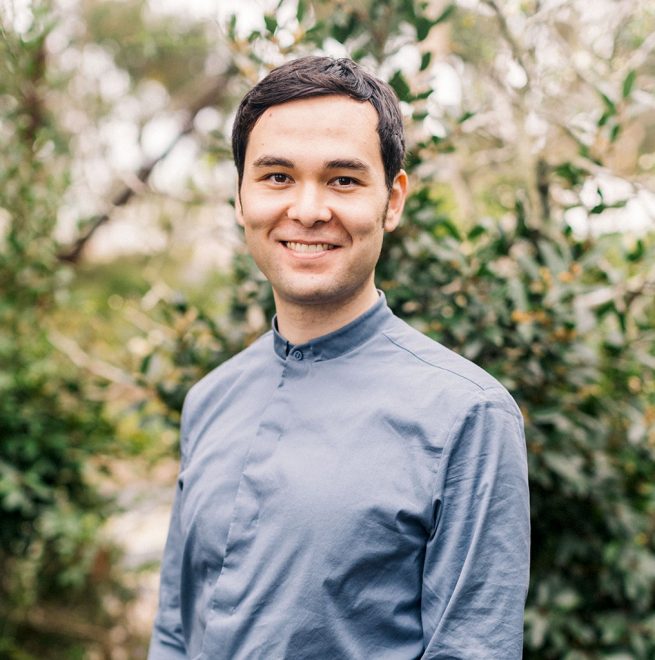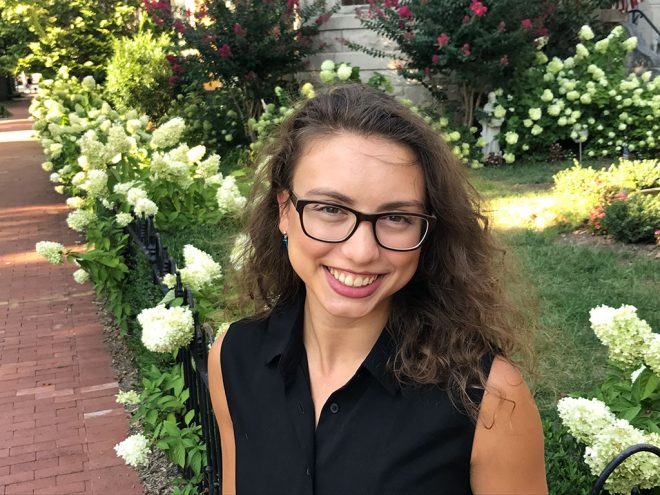Carolina’s global leadership in research relies on the collaborative work of faculty and graduate students. Close to 30% of the total enrollment at UNC-Chapel Hill, graduate students make research contributions in many academic fields — from medicine to musicology and beyond.
The Graduate School is featuring content, in a variety of forms, highlighting graduate student work in advancing discovery.
Precarious workers are particularly vulnerable to economic effects of the COVID-19 pandemic, and a UNC-Chapel Hill faculty member is leading a new study to learn about their current and longer-term challenges.

Alexandrea Ravenelle, assistant professor of sociology, is the author of “Hustle and Gig: Struggling and Surviving in the Sharing Economy” (2019). She recently received a National Science Foundation Rapid Response Research, or RAPID, grant to interview 200 gig workers and low-income workers in New York City about the work-related issues they are navigating during COVID-19. Ravenelle says this multi-phase study is believed to be the first sociological study to investigate a global pandemic’s effect on precarious workers in the United States.
According to a Federal Reserve report on U.S. economic well-being (2018-May 2019), three in 10 people surveyed reported working within the gig economy in 2018.
The first component of Ravenelle’s study is taking place now, and includes interviews with freelance workers in creative fields, gig workers who find employment via online platforms, and fast-food restaurant and retail associates. Graduate students Ken Cai Kowalski and Erica Janko, who are assisting Ravenelle via remote work, “have been an invaluable component of the project,” she says. They are conducting interviews, and then coding the collective interviews for common themes and work-related concerns. Savannah Newton, an undergraduate student in sociology, is also providing research support.

“Having Erica and Ken working on this means we are able to get a large number of interviews conducted during the early stage of the outbreak, while workers are struggling with the immediate impact of COVID and the resulting economic shutdown. Ken and Erica are taking the lead on interviewing restaurant workers and creative freelancers and they’ve helped expand our interview capacity,” says Ravenelle.
A second phase of the study is planned for fall 2020, when Ravenelle’s research team will interview the workers about changes in their lives — and livelihoods — due to the continuing impact of COVID. She hopes to pursue a third round to examine the pandemic’s longer-term impact on gig workers.
Kowalski, a doctoral student in sociology, says it is surreal to study the impact of a crisis at the same time that it is being experienced — and that it’s sobering to learn about the huge variety of struggles people are currently facing. The work of medical personnel, grocery clerks, delivery drivers and warehouse workers addresses the “immediacy of the pandemic,” he says.
Ravenelle said on a recent College of Arts & Sciences “Covid Conversations” podcast that “COVID has very much brought all the challenges of that work to the forefront,” adding that the pandemic is “bringing to light the larger issues in inequality in our society.”
Says Kowalski, “It is actually the prevention of a return to normalcy that I hope our research can help accomplish. Even as this crisis unfolds before us, it exposes the long-term failure of global political and economic institutions to deliver even the most basic forms of security for majorities of people around the world.”

Before beginning her doctoral studies in sociology, Janko was a freelance worker in the dance field. She is now interviewing New York City workers in creative fields knowing that, “if the pandemic had happened a year ago, I would have had no way of making money.”
Janko’s past research focused on freelance choreographers. She says artists and other freelance workers in creative fields face unique issues that have been understudied in sociology. “People understand that our society needs the arts, but art workers often aren’t protected or treated with respect. I’m looking forward to shedding light on the struggles that creative workers have always faced but that are being exacerbated right now.”
Ravenelle’s first semester of teaching at Carolina began in January — a semester that changed dramatically after spring break. In addition to taking the lead on interviewing workers for the NSF-supported research, Kowalski and Janko have helped Ravenelle learn more about the full range of resources available at Carolina.
“I am incredibly fortunate to work with such talented and dedicated graduate students. It says so much about the quality of graduate education at Carolina.”
Read more about Ravenelle’s study in this UNC Research story: “Gig Workers Face More Risks than Most During Pandemic.”
By Deb Saine, The Graduate School
